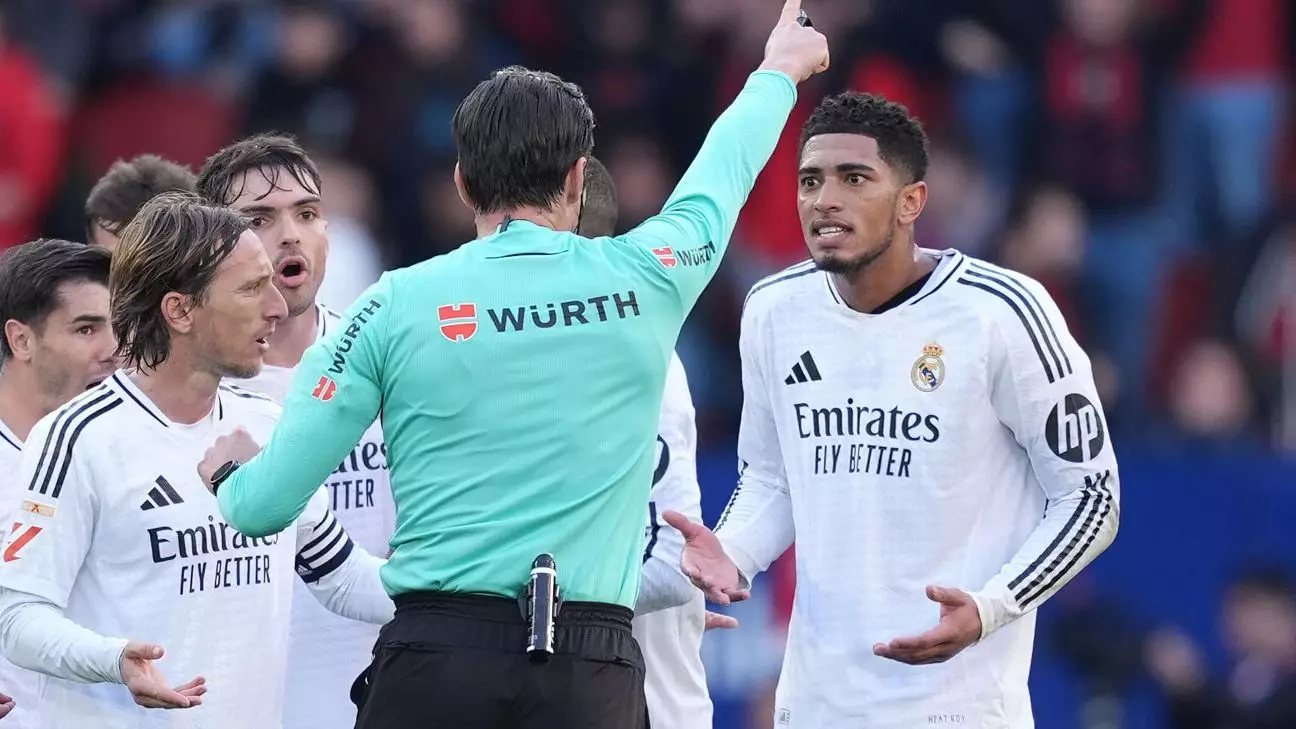The recent controversy involving Spanish referee José Luis Munuera Montero has ignited a heated discussion around the integrity of officiating in football, particularly regarding potential conflicts of interest. The referee faced significant backlash following a decision that saw Real Madrid’s Jude Bellingham receiving a red card during a tense match against Osasuna, culminating in a draw. Munuera’s decision was met with widespread outrage, leading him to close his Instagram account amidst a torrent of online abuse, including death threats.
In response to the escalating criticism and allegations of a conflict of interest due to Munuera’s co-ownership of a private sports consultancy, Talentus Sports Speakers, the Royal Spanish Football Federation (RFEF) launched an investigation. The inquiry aimed to examine whether Munuera’s business dealings were compatible with his role as a referee and whether they could potentially influence his decision-making on the field. The RFEF ultimately concluded that there was no evidence of a conflict, asserting that Munuera’s activities were distinct from his responsibilities as a referee.
This incident underscores a broader issue within the sport: the increasing pressure and scrutiny on referees in the age of social media. Refereeing decisions are often dissected and criticized in real time, making officials vulnerable to not only professional consequences but also personal attacks. The RFEF’s statement—that referees feel “sickened” by the abuse directed at Munuera—highlights the need for a more supportive environment for match officials amid growing tensions between players, clubs, and authorities.
On the flip side, Jude Bellingham also finds himself in a precarious situation. Despite claiming that his comments were misinterpreted, he received a two-match suspension, a steep penalty that reflects the league’s efforts to maintain respect towards officials. Herein lies a conundrum: how does one balance accountability with protection against misinterpretation? The decision threatens to overshadow Bellingham’s burgeoning career, raising questions about the fairness and transparency of disciplinary procedures in football.
Moving forward, the football community must grapple with these challenges. Procedural transparency in how refereeing is monitored and how disciplinary actions are implemented is critical. Moreover, the culture surrounding refereeing needs to evolve; physical and psychological threats against officials should not be tolerated. A proactive approach, including educational initiatives aimed at players, fans, and organizations on the importance of respecting referees, could foster an improved atmosphere around matches.
Ultimately, the case of José Luis Munuera Montero is emblematic of the complexities in modern football. As the sport continues to evolve, stakeholders must ensure that the integrity of officiating is upheld while simultaneously protecting those at the heart of the game. Emphasizing respect and understanding may be the path toward alleviating the pressures that referees and players alike face in this high-stakes arena.

